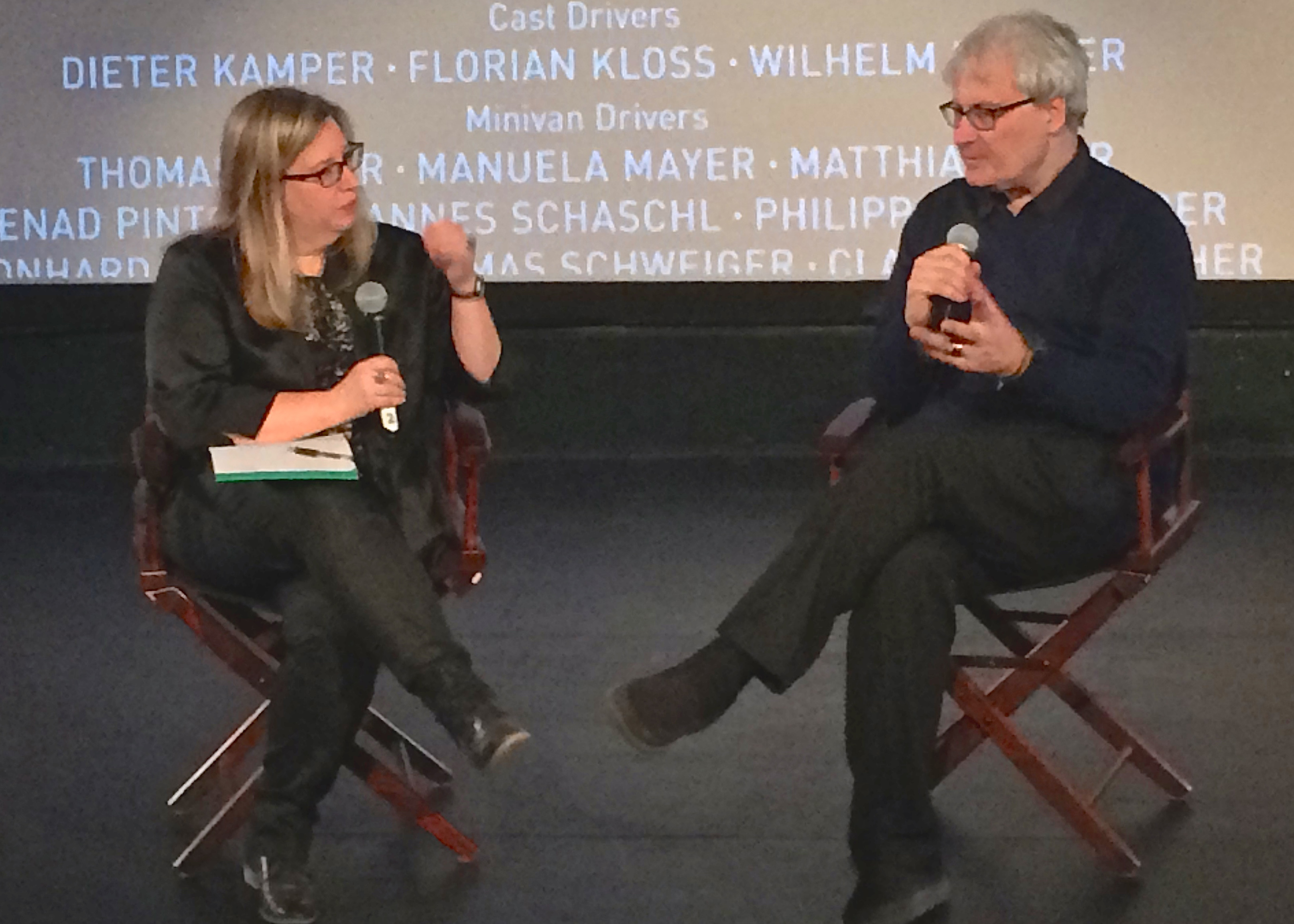 Lisa Rivo, co-director of the National Center for Jewish Film, to speak at Spertus
Lisa Rivo, co-director of the National Center for Jewish Film, to speak at Spertus
In 1938, Lodz, Poland’s second largest city, was a dynamic center of manufacturing and commerce, and approximately one-third of its residents-almost a quarter of a million people-were Jewish. Within five years, the Jewish population had been “purified” by the Nazis, and a thriving community was gone forever.
But thanks to the National Center for Jewish Film (NCJF), you can visit the Lodz that was on Sunday, May 31, when NCJF co-director Lisa Rivo arrives at the Spertus Institute for Jewish Learning and Leadership to screen a newly restored print of Molly Picon’s classic film Mamele.
If your image of Jewish life in Eastern Europe comes mostly from scenes of Anatevka (either in stage versions of Fiddler on the Roof and/or Norman Jewison’s 1971 screen adaptation), then Mamele’s thoroughly urban milieu will astonish you.
Papa Berel Samed and his large brood of six (three sons and three daughters) live in a modern apartment. Everyone is well-dressed and well-fed, and when daughter “Havche” (Molly Picon) sticks her head out the window to chat with the neighbors in other apartments facing their courtyard, she looks like a young version of Bronx-based Molly Goldberg. Then Havche falls in love with a handsome musician and travels with him to a charming summer resort complete with swans. But not to worry, his mother is there with them to chaperone, and then to celebrate later at their wedding banquet.
Following this large family of characters enables Joseph Green and Konrad Tom (who co-directed the film based on Tom’s adaptation of a stage play by Meyer Schwartz) to present a complete microcosm: Papa Berel plays dominoes with the other regulars at his favorite café, sister Berta dances with gangster Max Katz at a night club, and baby brother Avremel goes to school at the local kheder (Jewish elementary school). The men gather in a sukkah while the women serve heaping platters of holiday foods. In the grand finale, Havche marries her musician in a poofy white wedding gown. The bittersweet pain of watching Mamele now comes from knowing that all these ordinary activities-captured on screen as mere backdrop-were actually the calm before the storm.
“There’s quite a bit of time travel with these films,” said Rivo, who has already presented this new restoration of Mamele coast-to-coast from Boston to Miami to Portland, Oreg., as well as in Argentina, Australia, Israel, and Sweden. “These films are treasures and they’re fun, but they do benefit from having a bit of background and context, so I have a chance to set the scene before the film. It really makes a tremendous difference to have one of us [from NCJF] there. We talk about the restoration and the choices that we made (language, translation, subtitles), but we also talk about our films as part of a continuum of cultural film production as it relates to Jewish history and Jewish expression and Jewish experience.”
Afterwards, each Q&A is unique based on the questions asked by members of each specific audience. “In San Francisco, they asked me a lot of technical questions about the restoration, but in Buenos Aires, people were crying. Their children were translating for me from Spanish: ‘This was my story,’ ‘This brings back for me,’ and so on… There is an appetite for films that open up this world.”
Mamele (in Yiddish with new English subtitles) has a 97 minute run time, but the Spertus program on Sunday, May 31, will take the full afternoon. Lisa Rivo’s introduction, which begins at 2 p.m., will include a 3-minute short called Bringing Molly into Sharper Focus (showing how specific scenes looked before and after the restoration), and she will also be onsite afterwards for the Q&A.
Tickets are $18 for members of the public, $10 for Spertus members, and $8 for students. To order tickets, call the Spertus box office at (312) 322-1773, or visit the Spertus website .
To learn more about the work of the National Center for Jewish film, visit their website .
To learn more about Molly Picon, the actress Lisa Rivo rightly refers to as “unstoppably adorable,” visit the Jewish Women’s Archive: http://jwa.org/womenofvalor/picon
To read my review of Mamele , visit my Blog Second City Tzivi: https://secondcitytzivi.azurewebsites.net/2015/04/12/mamele/
Jan Lisa Huttner posts monthly on our JUF Blog “Tzivi’s Cinema Spotlight.” Her new book Tevye’s Daughters: No Laughing Matter is available from Amazon and Barnes & Noble. It is also available as an eBook on iTunes and SmashWords.
Top Photo: Mamele postcard courtesy of the National Center for Jewish Film.
Bottom Photo: Lisa Rivo conducting Q&A with Simon Curtis (the director of Woman in Gold). Credit: Elliott Rivo (3/23/15)
This article appears in print in the May issue of the JUF News. It was also posted in the Arts & Entertainment section of the JUF Blog on 4/27/15.


